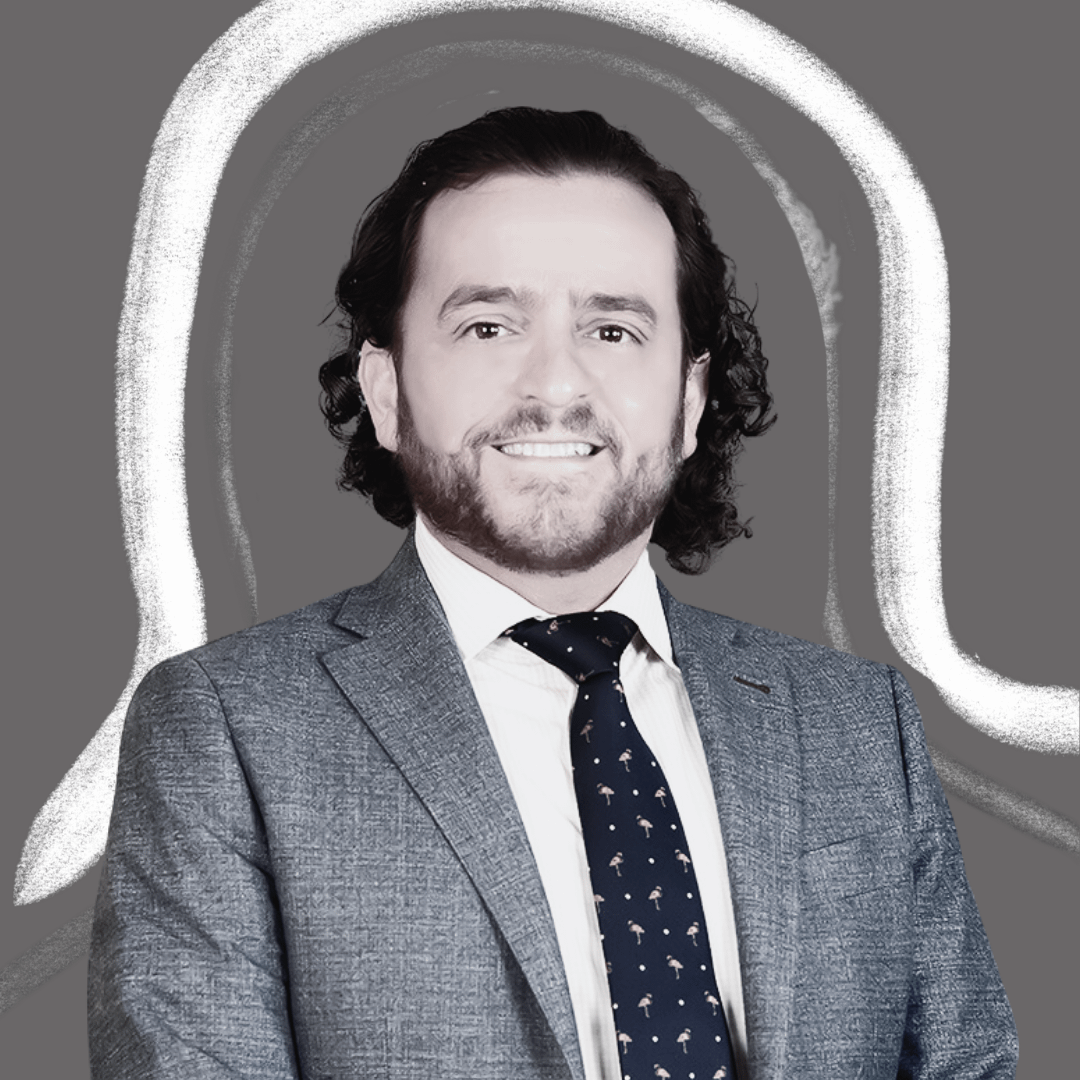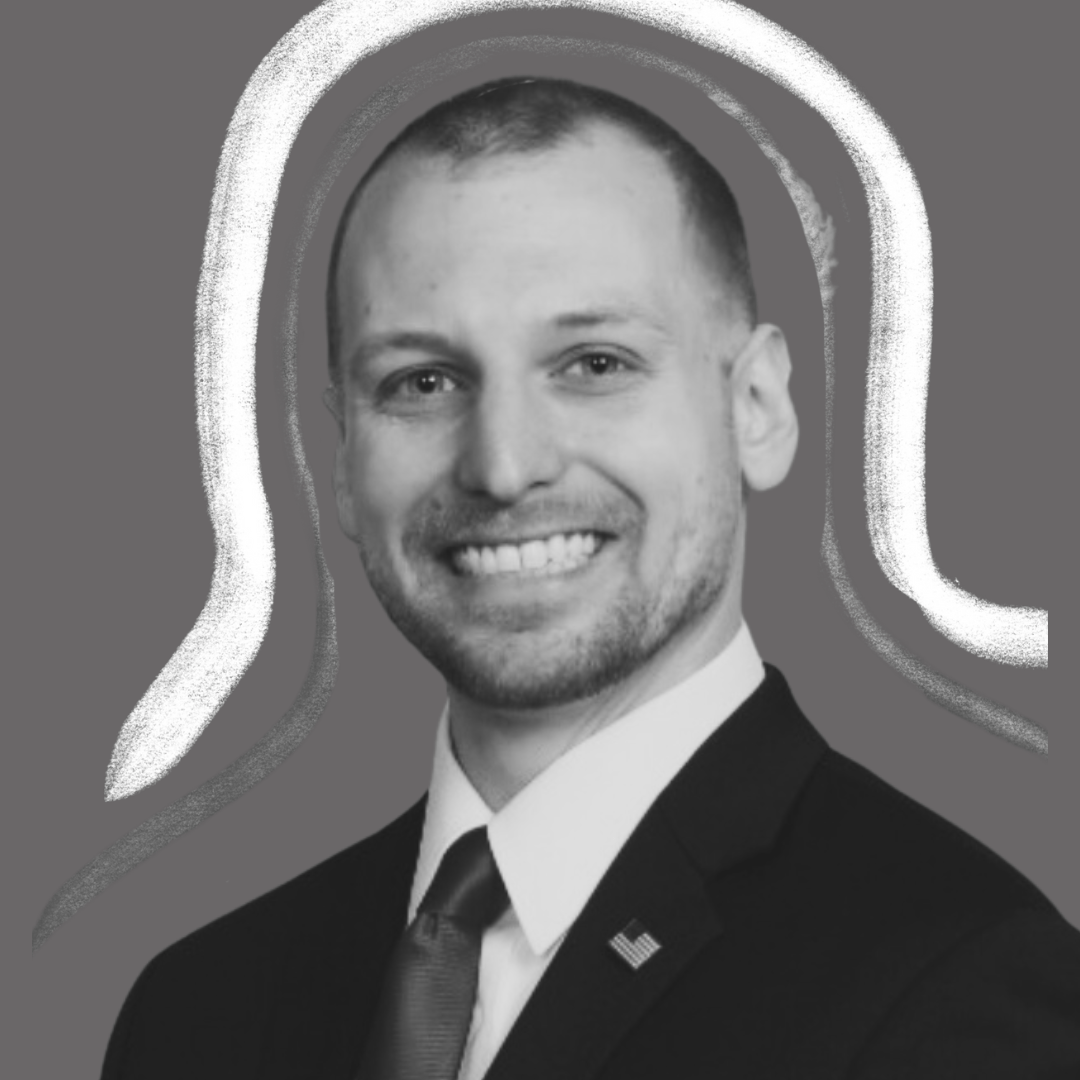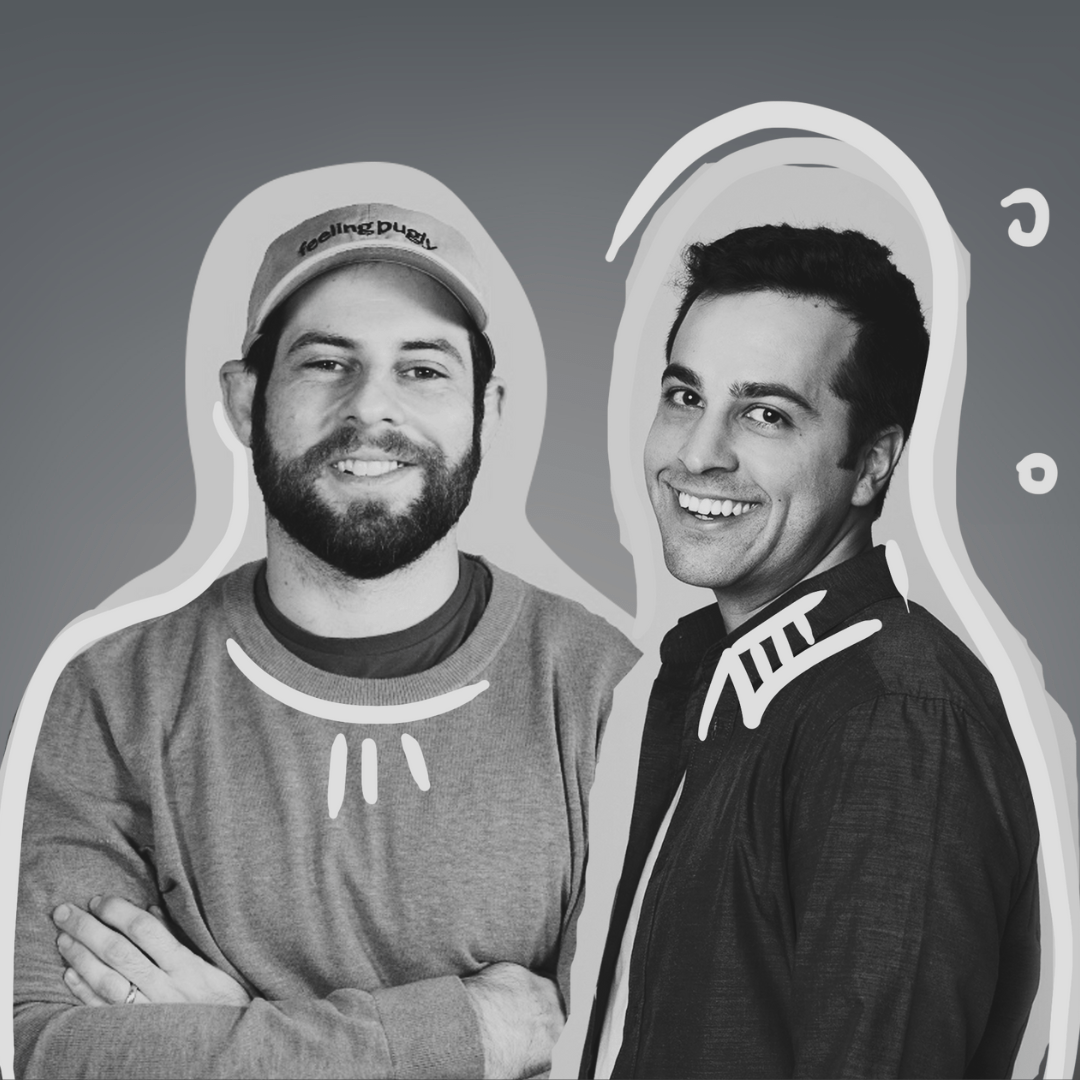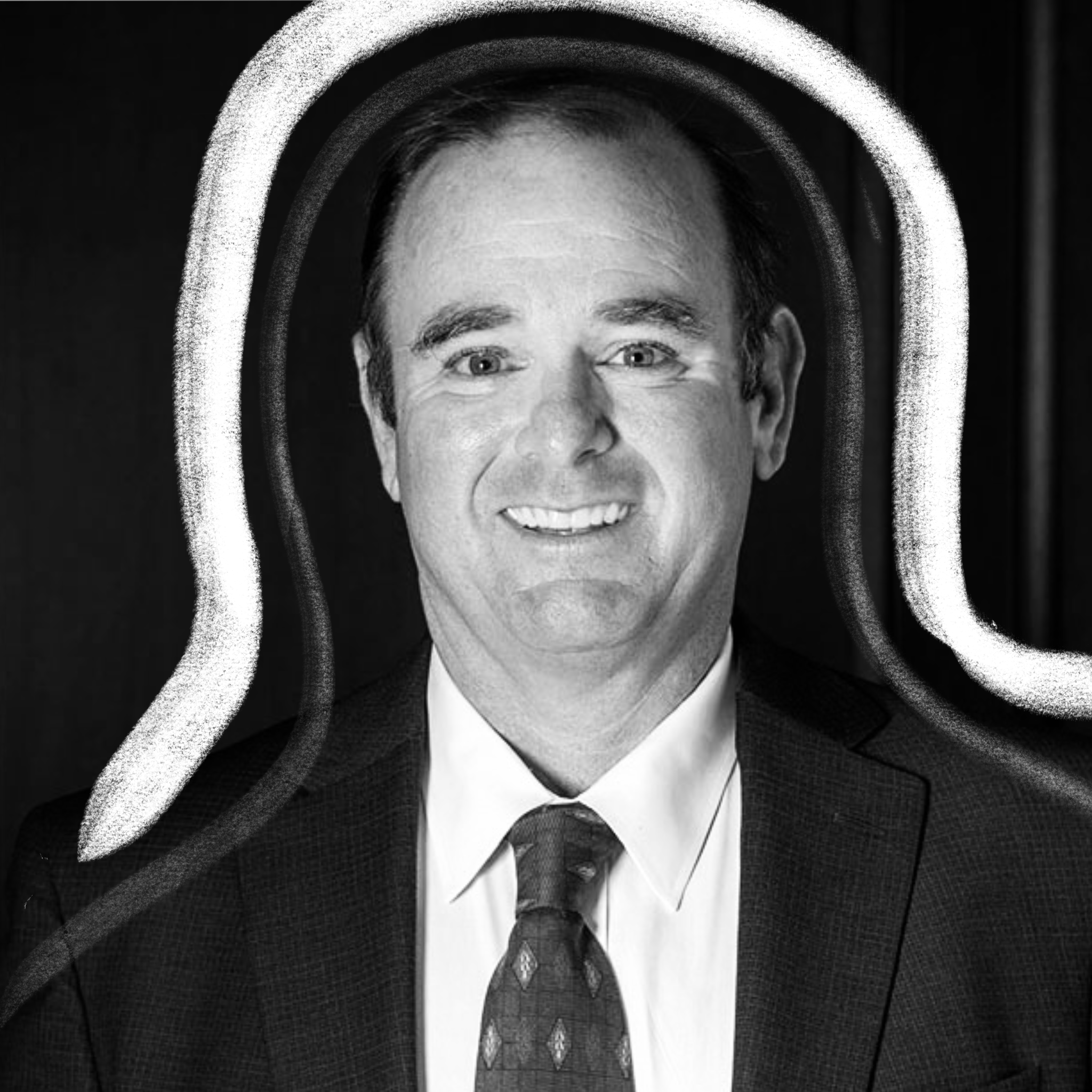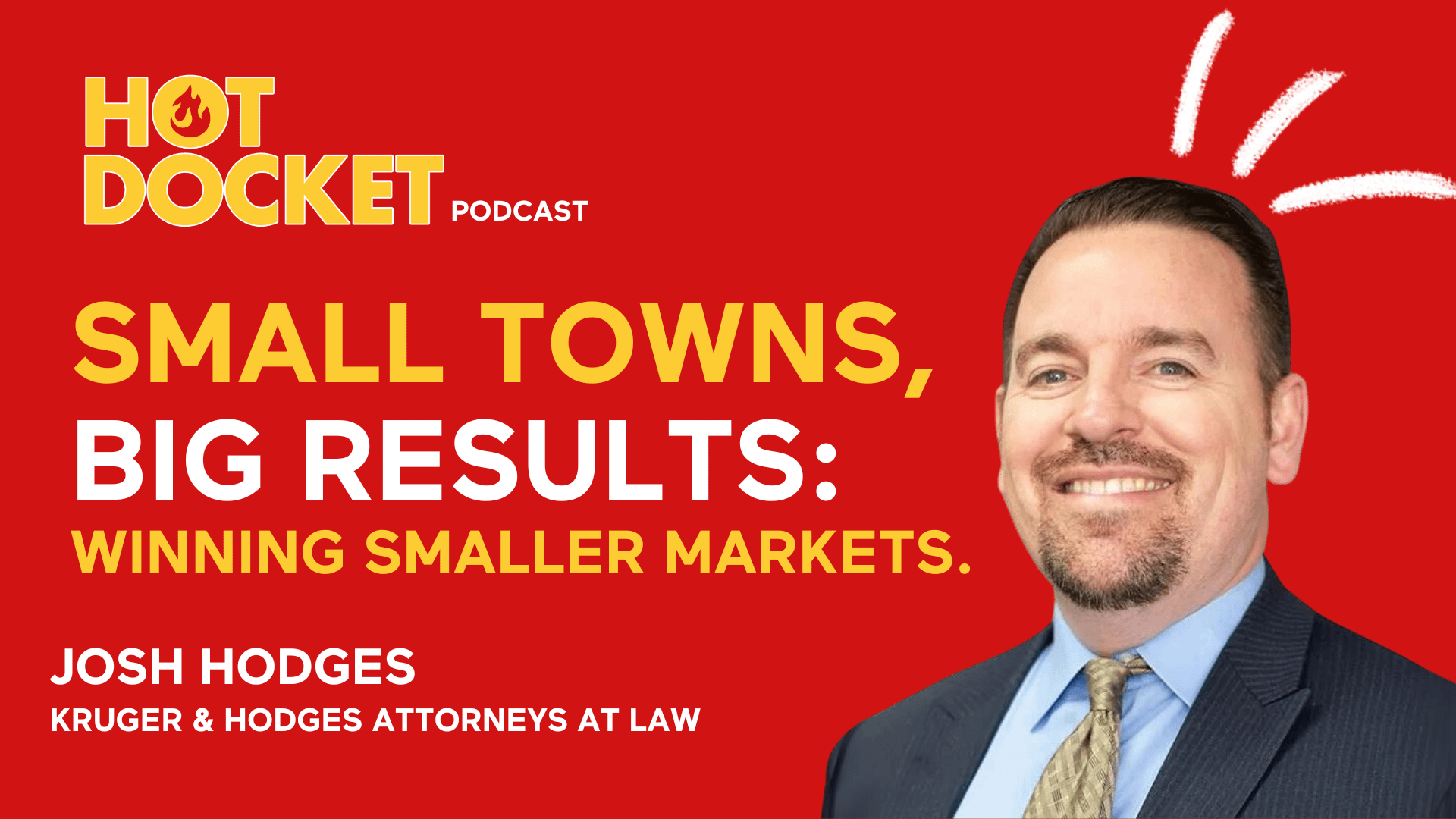
Episode Overview
How do you dominate a small market with grassroots campaigns? What’s the secret to expanding your local law firm into new towns and markets? And how the heck does a law firm implement a 4-day work week?
Today, you’ll get all the insider insights from the incredible Josh Hodges, a Personal Injury Attorney & Partner at Kruger & Hodges Attorneys at Law in Ohio. Josh has had quite the journey practicing personal injury law throughout Southwest Ohio, starting in his hometown of Hamilton.
Since then, he’s expanded into new markets, flooded our socials with captivating marketing, and even implemented a 4-day work week in his offices.
So, what are his secrets to small town success? Tune in to find out and stay tuned as we top off today’s conversation with a classic game of Two Truths and a Lie!
Episode Links
Want to hear more from elite lawyers and industry-leading marketers?
Follow us on Social Media for more
Episode Topics
- How to make your law firm successful in a small town.
- What it’s like to start a law firm in your hometown.
- Key strategies for expanding your law firm into a new town or market.
- Advantages and disadvantages of having a smaller local law firm.
- Why and how Josh implemented a 4-day work week in his law offices.
- Effective social media strategies for small law firms.
Key Actionable Takeaways for Law Firms:
- Consistently get involved in your community and build a rapport with the people in your small town/market. Make sure they know that you care about them more than big city law firms do.
- Expanding into new communities requires careful consideration of population, competition, and community dynamics.
- It takes a while to build trust with the community in a new market, but once you do, word spreads fast (good AND bad) and you’ll soon become their go-to law firm.
- Implementing a four-day work week can be a successful strategy for employee retention and satisfaction. If you want to implement a 4-day work week in your law office, structure and accountability are the keys to preventing your staff from taking advantage of the flexibility.
- Engaging with the local community through social media and community involvement can help build brand awareness and trust.
- When it comes to marketing/advertising your local law firm on social media, dare to be different and collaborate with your community and team members. Be personable, educational, and engaging!
Episode Transcript
[00:00:00] Josh Hodges:
If I can find a county with 40 or 50, 000 people and no entry lawyers, that’s better than being in a town of 200, 000 where there’s seven or eight. The more population you can get divided by how many people are there doing it, I think is a good place to start.
[00:00:18] Bobby Steinbach:
Welcome to Hot Docket, the show where we talk about winning marketing strategies that have built the most successful law firms.
[00:00:23] Bobby Steinbach:
Join us every two weeks for the latest trends and tactics to grow your law firm.
[00:00:30] Bobby Steinbach:
Hey, everybody, and welcome to the Hot Tocket Podcast.
[00:00:33] Bobby Steinbach:
Today, we’re going to be talking about dominating small markets with grassroots campaigns with our guest, Josh Hodges. So I’m really excited for today’s episode. Usually, I feel like we talk about like big firms, what they’re doing and like how to spend TV budgets.
[00:00:47] Bobby Steinbach:
That doesn’t that’s not the strategy for everybody.
[00:00:49] Andrew Nasrinpay:
Yeah. So big markets, top DMAs, TV, that’s all. Huge, huge budgets, and a lot of times that’s not applicable to most folks. And a large portion of the population lives in small towns. Where the marketing should be, uh, geared towards them. And that’s where small firms can have a lot of advantages.
[00:01:11] Bobby Steinbach:
Yeah, a hundred percent. And I think that’s a great introduction for today’s guest, Josh Hodges, a partner at Kruger and Hodges, also known as the hometown lawyers.
[00:01:26] Bobby Steinbach:
Thanks for coming on the show, Josh. Thanks for having me, Bobby. Of course.
[00:01:30] Bobby Steinbach:
So I wanted to just start out. Um, basically a lot of lawyers have this perception that to make it big, you need to be in the population hubs, but you’ve built a business that comes at that problem from a different angle. Um, can you tell us a little bit more about your philosophy on when and where to put down those roots?
[00:01:46] Josh Hodges:
Yeah. I mean, I think maybe if you want to make it huge, eventually you’re going to have, you know, be national. You’re going to have to go to a big city eventually, but. You don’t have to go to a big city to do well. And everybody’s definition of doing well, I guess, could be different. But when I started out, I didn’t have, I had one client.
[00:02:01] Josh Hodges:
I was in big law. I had put my two week notice. And the last day I was finishing up my two week notice, one of the partners I’d been doing work for, we were doing, I I was at a firm like 550 lawyers, so I was doing a way different stuff then than I do now. But one of the partners came and a kid he knew’s dad had gotten a little trouble and needed a lawyer.
[00:02:19] Josh Hodges:
So that was my first client. The day I left, I got it. I didn’t really know what I was doing. I had to call another lawyer to figure out how to take care of the case. But long story short, I didn’t have, a client base. I didn’t have a lot of money either. And so I couldn’t go to a big city and have a TV budget.
[00:02:33] Josh Hodges:
Obviously I couldn’t even probably rent at a place in a big city. Uh, very easily, you know, you got to even rent parking in big city. So like I wanted to go where I was from smaller town, but, but it’s not a tiny town. There’s like 60 little bit over 60, 000 people in my hometown. And I figured, you know, I could probably do a little damage there and like, you know, get by.
[00:02:51] Josh Hodges:
And then from there, I really realized that was kind of working and maybe I could, um, Replicate that in some other small or mid sized towns and if you do that, you know, if you have enough singles, you can get into the hall of fame, you know, people. Pete Rose is from my Cincinnati where I’m from and, um, he got, you know, he didn’t get in the hall of fame because he bet on baseball, I guess, and not the best example, but he would have been and he hit a lot of singles.
[00:03:15] Josh Hodges:
So you don’t have to swing for the fence all the time in business. I don’t think so. If you got, if you do really well in four counties and each county’s got just 60, 70, 000 people, that’s as good as doing. Uh, good in a city of 2300, 000. So that’s kind of my strategy. Um, it comes with some other benefits as well, but also some downfalls, too.
[00:03:37] Josh Hodges:
So I mean, not everything’s perfect.
[00:03:39] Josh Hodges:
Um, you don’t What I have found is when I go to some of the small towns and do a lot of marketing, I get some cases, but when I need to hire people out there, I didn’t really think of this part. You know, I think I’m, everybody thinks they’re brilliant. So I had a good idea with the marketing, but then, you know, if there’s no injury lawyers in these counties where I’m marketing, how would I ever think I’m going to find people with experience to work for me?
[00:03:59] Josh Hodges:
I didn’t really think of that second part. Sometimes you need business people. We kind of run sometimes before we think it all the way through. So I’ve had to kind of figure out ways to, uh, to backfill and get people to work for me, um, and figure out ways to train people up that didn’t have experience.
[00:04:13] Josh Hodges:
But, you know, it’s better for a lot of my employees too. I mean, I take a lot of employees from bigger city firms, uh, in Cincinnati or Dayton because they don’t have to pay to park, you know, it’s easier to get to a small town, there’s less traffic. So, you know, there’s It’s more than just the market. I think you can really make business in a law firm work in a small town, but you have to, you have to figure out ways to get out there and you don’t always going to have the big budget.
[00:04:36] Josh Hodges:
Um, cause the guys in the big city, they’re still marketing here. So you got to really make sure people know. not only my marketing, but I am here, you know, and I, and I care about this town more than, more than they do. You know, it’s kind of part of the secret, I think.
[00:04:48] Bobby Steinbach:
And how hard is it to find like treatment provider?
[00:04:50] Bobby Steinbach:
I know you talked about finding attorneys, but what about finding providers to treat injury and such?
[00:04:55] Josh Hodges:
Yeah. I mean, that’s, that’s going to be different too. Cause you know, the big cities, there’s going to be more doctors that are kind of probably used to the use of the personal injury kind of grind and working with attorneys.
[00:05:05] Josh Hodges:
So you, It’s kind of education, kind of like you educate some of your employees to get them better. Sometimes you have to talk to doctors and explain to them, because a lot of, you know, in society, personal injury lawyers, a lot of people think negatively of us. And a lot of doctors may not really think too positively of us either, because they may have been sued by some medical malpractice attorneys.
[00:05:23] Josh Hodges:
So I think educating them, letting them know that we are helping people, we’re helping You know, our client, which is oftentimes their patient, and we’re not always against each other. Um, and if you, if you show up enough in the community and people get to know you, they get to know me, they kind of know, they start to believe what I’m telling them.
[00:05:39] Josh Hodges:
It’s not just some shtick, like he’s serious and he is an okay guy, and he’s not just out after trying to get every dollar he can. And I think that goes, helps the marketing, the everyday person may be more willing to call me, but I think it helps with the providers too, more willing just to give me time a day to listen to me and give them my.
[00:05:57] Josh Hodges:
my pitch, how they can help and how we can maybe work cases together.
[00:06:01] Andrew Nasrinpay:
That makes sense.
[00:06:02] Andrew Nasrinpay:
On the subject of putting down your roots there, I think you’re a rarity in that your firm is based in the town you grew up in. What has that experience been like?
[00:06:09] Josh Hodges:
Um, it’s really been to me kind of just seemed easy.
[00:06:13] Josh Hodges:
Cause I was working in a bigger firm at first. And then when I first left, I had my first office closer to Cincinnati, the bigger city near me, and I was doing okay there. And then I decided, you know, when we go to Hamilton and just, It became easier because it just makes sense. I know a lot more people here.
[00:06:27] Josh Hodges:
So, you know, I was getting by and making okay money in a town that a lot of people didn’t know me. So it just made sense. Well, if I go to a town where a lot of people do know me and know my family, and I’ve been, I went to elementary school here. So I started getting calls from people that I went, you know, The junior high with I ain’t seen in 20, 30 years and there’s all you’re a lawyer now and they got a problem, you know So, um kind of seemed natural to me You know my my i’m sitting in my office in hamilton right now The courthouse is like two blocks that way and then about three more blocks on the other side.
[00:06:56] Josh Hodges:
The courthouse is my hat is my house, so um I can get home in less than 23 minutes. Um, my partner was in high school a few years ahead of me and his mom was a teacher at our high school. She was one of our first employees. She answered the phone for a while for us. She was a retired teacher. She taught me home X.
[00:07:13] Josh Hodges:
So it’s just we doesn’t we have deep roots. I’ve had family in this town for almost 100 years. So Uh, my wife is from upstate New York originally. So she just kind of kids everywhere we go. Somebody knows me or I’m somebody’s cousin or something. So when you got really deep roots, it, it just kind of made sense.
[00:07:30] Josh Hodges:
And it, and it became
[00:07:30] Bobby Steinbach:
a little bit easier. Yeah. I’m from upstate and in my town, I’m from a pretty small town, Chatham. It’s like 2000 people or whatever. And we didn’t have like a hometown lawyer, so to speak, but we had an insurance company that was in the family for. I don’t know, 50 years, um, just passed down generation to generation and I always thought that seemed pretty awesome, having that like continuity.
[00:07:52] Josh Hodges:
Yeah. And, and it, and it, and it kind of, you know, I read, you know, you know, I’m a little small personal injury firm. You know, I, the biggest, obviously everybody knows John Morgan. I, I read his book and or, and I’ve heard read, listened to him a lot of podcasts and I don’t know where, which one it was on.
[00:08:06] Josh Hodges:
Someone asked him like, what would you do if you’re a small firm or smaller firm and someone like. yourself, John, come to their town and start marking a lot. How would you feel? And he’s like, well, you know, uh, I know most, he said, I’d be a little bit embarrassed if I could come into someone’s hometown and get more cases.
[00:08:22] Josh Hodges:
Like you shouldn’t let them do that. So I know I’ll never probably have that money or the ability that he has in that way, but like, or people like him, but I can out Hamilton them, you know, like if he can, if some big lawyer that’s not from here can come and do more in Hamilton than me, then they kind of deserve to get the case is my opinion.
[00:08:38] Josh Hodges:
So that’s kind of my goal is I’m going to, um, No one’s going to out Hamilton me. And, and, and then it kind of spread to the other firms. Like we started the URL and we first started the hometown lawyers and it was mine and Scott’s hometown. So made perfect sense. But then as we grew, we’ve opened some other offices.
[00:08:53] Josh Hodges:
And then I was like, well, dang, I’m not the home. This ain’t my hometown in Middletown, Ohio, but you know, we open most of our offices in towns that are similar. They’re kind of like Rustbelt towns, old factory towns, working class towns. So. All of them have that similarity. So when I’m in Middletown, Ohio, it’s not my hometown, but it kind of looks like my hometown.
[00:09:11] Josh Hodges:
There may be some buildings that need fixed up, but there’s some people working on others and they’re trying, there’s maybe some factory jobs that went away and I feel kind of like I’m in home and all the towns we’re in. And I, and I just kind of made the commitment, like, okay, I opened an office in Wilmington.
[00:09:24] Josh Hodges:
It’s not my hometown, but I’m going to treat it like it was. So like, that’s my commitment to myself. Like I’m going to help the little league team there too, just like I do in Hamilton. And, and I think. You know, people know like, okay, you’re an outsider, but if you keep showing up, even in a town, that’s not actually your hometown and you treat it like that, people know, like, you know, this guy’s really does care and he shows up and I think it feels good to do it, you know, and it’s the right thing to do.
[00:09:49] Josh Hodges:
And if you have fun doing, I think it does come around, help the business down the line, maybe not tomorrow. It’s a long term kind of thing because I didn’t get busy immediately. I mean, we, we didn’t. just start getting tons of cases the first six months. It’s just not like that with grassroots. Maybe with some Google ads and things, you can get cases fast.
[00:10:06] Josh Hodges:
But if you want to get out in the community, it takes time for people to know you’re you’re here and not fly by night. You’re not gonna close in two years. You gotta have some longevity.
[00:10:15] Andrew Nasrinpay:
Can you walk us through your framework for when you’re going to expand into a new, uh, community and you’re going to choose where you want to put your new office?
[00:10:25] Andrew Nasrinpay:
What are you looking for?
[00:10:27] Josh Hodges:
Yeah. So it’s kind of funny. I mean, part of it’s feel like I go there and I just kind of hang out a little bit. And, uh, I’ve kind of kid with people in my office will ask me sometimes like, I like the county seat in Ohio. We’re kind of lucky. There’s a lot, there’s a few bigger cities.
[00:10:42] Josh Hodges:
But there’s a lot of like mid sized towns. Not every state I’ve looked around has as many as Ohio does that are older, you know, and, uh, you know, There’s the county seat. They have a lot of old rule, historic courthouses. So I kind of like a town that’s in the center of a county. It doesn’t have to be real big necessarily, but it has the courthouse.
[00:10:58] Josh Hodges:
I kind of like a nice coffee shop, but it’s like maybe newer than where it shows like there’s some vibrance. They’re trying to get something going here in the downtown area. Cause a lot of these towns have been run down since the industrialization and they’re trying to find them, find themselves again.
[00:11:10] Josh Hodges:
So I look for that. Some liveliness, but then when it comes to like brass tacks and numbers like, you know I got a look at population like a county of 4, 000 people probably not enough, you know So I kind of look like population divided how many injury lawyers are there there are attorneys in general So, you know if I can find a county with 40 or 50 thousand people and no injury lawyers, you know, That’s like being in a town of 200, 000 where there’s, that’s better than being in a town of 200, 000 where there’s seven or eight, you know, um, in my opinion.
[00:11:40] Josh Hodges:
Um, so I kinda, it’s kind of a math problem. The more population you can get divided by how many people are there doing it, I think is a good place to start. But then I, then it’s got to have the feel for, for me, like I’m not going to go to a town that’s more suburban and maybe a little bit more, like newer and subdivisions.
[00:11:57] Josh Hodges:
I don’t I don’t feel like that’s my niche. Really. Um, I want a place like Hamilton with maybe there’s an abandoned factory somewhere in the town that some people might see as an eyesore and maybe they’re trying to fix it up or do something. But I feel like that’s kind of like We’re like my people, if I have a people, like that’s where I feel the most comfortable and that, you know, I wish I’d got the memo.
[00:12:18] Josh Hodges:
You guys are like with the flannel, that’s me every day. You know, I wear a suit if I have to, um, I kind of, you know, people in my family wear suits till maybe a funeral or a wedding, but that’s it, you know, that’s the only, they got one tie, you know, the guys in my family, they got to look for it if, if they need to find it, you know, for some event, but that’s kind of the people I, I, I.
[00:12:37] Josh Hodges:
have done well with, you know, and I mean, I help all sorts of people and I get all sorts of clients, but you know, I think working class towns and, and kind of old cities is kind of my, my, my niche. I
[00:12:51] Bobby Steinbach:
love the, the idea. It kind of like, and it kind of gave me an idea. It’d be very interesting if there was like a, either just an open AI plugin or something like that, that you could ask the question, where should I open my next office?
[00:13:03] Bobby Steinbach:
It overlays population centers, overlays injury incidents. Maybe like demographic info and gives you like some, some ideas.
[00:13:11] Andrew Nasrinpay:
Yeah, I, I feel like you could pull a lot of the data points you’re talking about. It’s just time consuming and putting it all into a spreadsheet and putting it on a map and seeing if you open an office there.
[00:13:23] Andrew Nasrinpay:
How likely, how spread out is that population you’re looking at too? Because if you open a physical geographic location, your, uh, local pack result might not show up if you’re too far from where that searcher is on Google. So I think all of those things, um, it’d be really cool to be able to visualize it.
[00:13:44] Bobby Steinbach:
Yeah. At the end of the day, it’s like an opportunity cost problem. Am I better off putting my marketing dollars in this office or buying local like PPC ads or buying a billboard or whatever it is. So you’re just trying to find like a mini max optimization, right? Um, no, it’s cool stuff. And Josh, just on this, on this topic of, uh, being in a community and, you know, being so tight knit, I’d love to hear, you know, having practiced there for a long time, I’m sure there’s a fair share of advantages and disadvantages with being local.
[00:14:13] Bobby Steinbach:
Can you walk us through what some of those, you know, maybe disadvantages are given that we’ve talked pretty in depth about the advantages.
[00:14:20] Josh Hodges:
I mean, one disadvantage is there’s just going to be a larger talent pool in a bigger city if people have worked in, I mean, probably various fields, but definitely in, you know, personal injury, you know, if I’m looking for paralegals or legal secretaries, people have worked in medical records and law firms, there’s not going to be a lot of those in a small town where I’m the only, or maybe there’s only one other injured lawyer and he’s a solo and has one secretary, there’s not, you know, so I’m either going to have to find people from the big city, draw them here, let them work from home, or, you know, or find people in towns and train them up.
[00:14:49] Josh Hodges:
And I’ve done a little bit of all three of those, you know, kind of figured out as we go. Um, so that’s one of the disadvantages. Other than that, I mean, I think If I was like a divorce lawyer and no hate on them or anything, think it’s a tough job. It’s a good business. But like if I was in a small town and I was a divorce lawyer for 20 years, I think by the end of there’s gonna be a lot of people might not like me that much with injury.
[00:15:09] Josh Hodges:
You know, people are always gonna rip on injury lawyers a little bit, but I’m not like fighting. The case is never really against other people in the community. So even if I actually I’m suing them on the On the paperwork. It’s typically we’re getting the money from the insurance. So I don’t think I’ll even if I do this for a long time, a lot of people in town are gonna be mad because I hurt them in the lawsuit.
[00:15:29] Josh Hodges:
It’s usually I’m helping people against the big company. So that could be a disadvantage if you’re another type of lawyer, but doesn’t really hit us too hard. Um, advantages. I mean, it rents cheaper. You can find it. You know, a downtown office and a lot of small towns, at least in Ohio, for very reasonable.
[00:15:47] Josh Hodges:
Um, one disadvantage is especially not in Hamilton because I was from here. But when I went to new towns, you know, I am an outsider and at first in small towns, people can, they know you’re an outsider. They never seen you before. Like the town you’re in New York. I mean, if I’m up there, people know I’m not from there pretty soon.
[00:16:01] Josh Hodges:
They never seen me or they would already know me. So it takes a while to gain trust. But then it become if you do that work and I’ve seen this happen, it To me and others. Once you do the work and get some trust, you know, work kind of spreads fast too. And then they’re kind of, you’re their guy until you mess it up.
[00:16:16] Josh Hodges:
So, you know, if you keep your word and do a good job, might take you a little bit longer to get going in a small town where they don’t know you. But once you do, I think you kind of got a little bit of moat around you. Cause like you, people trust you now and word spreads good or bad. So it’s, it’s on you to make sure it’s good word, right?
[00:16:31] Josh Hodges:
You want to,
[00:16:32] Andrew Nasrinpay:
yeah.
[00:16:33] Andrew Nasrinpay:
Speaking of advantages, uh, I heard that you introduced a four day work week. for your firm’s operations, uh, besides being a great recruiting tool. How has that worked out for you? And from a logistic, from a logistical standpoint, do you recommend it to other firms?
[00:16:48] Josh Hodges:
I think it’s, it’s not something I would just do lightweight and easy because it does come with, you know, It took some getting used to, um, because, you know, the people are here one last day.
[00:16:58] Josh Hodges:
So it took, I think on their end, getting used to, they still had to get their work done in a little bit less time. And for the attorney, the attorneys and my office manager, we still work full a full week, you know, so trying to remember, you know, okay, she’s gonna be off tomorrow, figuring it out, like what we gotta get done.
[00:17:14] Josh Hodges:
But it I don’t really have turnover. I haven’t had much compared to other firms. I know that people like it. It helps me with recruiting, but it helps me keep the good people I have. It has made us become more efficient, um, because we’ve got less time we’ve got to get it in. Um, I personally just like it as a boss and I’m not, this ain’t just part of my propaganda recruit.
[00:17:33] Josh Hodges:
Like, I don’t know, like when I’m, we’re doing pretty good and like, It, could I squeeze a little bit more out of people in five days? Maybe I could, if I wanted to, there’s lots of things I could do, you know, to save a penny or whatever, but if you’re doing good and people are trying hard for you, like, I don’t know when I’m old on my deathbed or whatever, like, I think it would be kind of cool.
[00:17:50] Josh Hodges:
Like, man, I let people have a day off with their kid or like to go. Some of them are taking classes. I’ve had people that don’t have kid or classes. They just have a mental health day and they just go have a day off where they don’t do anything. And I don’t know, I know people, they know, and I’m not a perfect boss by any means, I’ve made plenty of.
[00:18:06] Josh Hodges:
the way and we’ll keep doing it. But I know my team, if they’re asked, do we care about them? They know I, I, they know I get, I’m giving to them and doing our best to be nice to my employees. Um, one of the downside was, you know, on Fridays, they’d still be in it. I’ll clarify. They’re not all off on one day. I had to like, I threw it on them to decide when I did only had five employees.
[00:18:28] Josh Hodges:
So I need people here all days of the week. You guys figured out which day, cause I couldn’t let them all off on Friday. And oddly enough, I thought that’s what people would want. Some people wanted Wednesday or Tuesday, for whatever reason, they had a day that they wanted in it. I kind of let them work it out on their own.
[00:18:44] Andrew Nasrinpay:
Um,
[00:18:44] Josh Hodges:
so I always have coverage and they kind of stagger the days off, but. One of them, one of my, one of my longest term employees on Fridays, she would, you know, kind of talk a little too much and I’m pretty lax on stuff. You’re getting your work done. But one day, uh, she was really kind of messing around a lot and I had to like give her a little crap, but you know, like, let’s get some work done.
[00:19:01] Josh Hodges:
She said, boss, it’s Friday and she has Wednesdays off. And I was like, well, I kind of have, you kind of have Mondays and Tuesdays, many weekend Mondays and Tuesdays. This is going to work. And she kind of got it like, all right, fair enough. She knows it’s a deal, you know, um, so we got to get, you kind of, that’s the four day week is nice, Josh, but I did kind of have to hold accountability more, which is not natural to me.
[00:19:22] Josh Hodges:
I kind of had to be a little bit more, I wouldn’t say harsh, but just like kind of got a little be a little bit demanding on those days and get it. We got to get it done or we’re going to have to go back to five days and nobody wants to do that. And I don’t want to do that either. We’ve been, we’ve been in almost two years now and we’re still growing and getting it done.
[00:19:39] Andrew Nasrinpay:
I don’t think anyone wants to be the employee that ruined it for everyone. Yeah.
[00:19:43] Josh Hodges:
It’s pressure.
[00:19:45] Andrew Nasrinpay:
Logistically. Do you have like a office calendar and everyone had to pick? One day or how do you, how do you determine which days they can or can’t based on the coverage? Is there a shared calendar that everyone looks at?
[00:19:59] Andrew Nasrinpay:
Are they all choosing the same day every week or how does it work?
[00:20:03] Josh Hodges:
It’s the same day every week. Yeah. So, uh, when I first started, I didn’t have, it was two years ago, I didn’t have as many employees as I do now. So amongst the four or five that were doing it, I just said, Hey, y’all got to figure it out. So when I’m had Friday, one Thursday, Tuesday, you know, they figured it out their own and they stuck with that every day.
[00:20:18] Josh Hodges:
Um, what I do is When we bring on, because we’ve hired quite a few people since then, when we bring on a new person, when we’re bringing them on now internally, I kind of look at the days that are already people are off, and I talk to my office manager like, okay, Bobby’s starting with us, uh, what days do you think we can let him have off?
[00:20:35] Josh Hodges:
And we’ll probably be like, Hey man, you could, it looks like you can have Tuesday or Thursday. Cause you’re kind of seniority wise. Like if, if one of the people have been with me for a few years, had Tuesday and they want Friday now, if you’re covering Tuesday, you know, we kind of shifted around as we go.
[00:20:49] Josh Hodges:
Um, the one thing also, I don’t, I don’t give, sick days. Now, if you’re sick, you can be off for sure. But if you, if your day is all Friday and you call in with a cold Tuesday, then, then it’s kind of expected you work Friday. And if you’ve already had something planned, I’ll let you work the next Friday, but you got to make that day up.
[00:21:04] Josh Hodges:
I need four days a week. So if you call off for a week sick, that’s fine. But then you got, you know, three or four weeks of working five days like every other person, you know, to make up for it because I can’t, you know, we’re giving you 52 days off a year. So And I didn’t really think that through all the way at the first.
[00:21:20] Josh Hodges:
And another funny thing, people will try to, even when you’re nice to them, they’ll try to, I wouldn’t say take advantage, but they’ll go take it as far as you’ll let them. Everyone, a lot of people here had two weeks vacation. So I started going to four days a week in my brain automatically. You just had two weeks and now you got eight days.
[00:21:35] Josh Hodges:
Well, nevermind. They still had 10 days. So they were trying to get two and a half weeks. Then, you know, it was like, like, so we had to, you know, doctor up the, the program when we had smaller amount of employees and kind of figure it out. So that, that’s kind of how we do it. Um, it’s worked out pretty well. I mean, they’re pretty flexible with it cause they know they’re getting a deal and if they, they mess it up, I could always take it away and I don’t want to, but sometimes they’ll flip if, if one’s off Tuesday and one’s off Thursday, they’ll flip, you know, they kind of work it out amongst themselves.
[00:22:02] Bobby Steinbach:
Yeah. Doing things differently, I think is always another way to stand out and just talking about doing things differently.
[00:22:09] Bobby Steinbach:
I’ve seen your social media. You pretty much bombard my feed, or at least it hasn’t been as much recently, but in LinkedIn, you’re all over the place. Um, and you place a really heavy emphasis on being out and about in the community, interviewing local leaders and, you know, generally just putting a human touch on the brand.
[00:22:25] Bobby Steinbach:
Um, so if you could just talk about how you’ve approached that social media strategy, you know, what have you seen work especially well?
[00:22:32] Josh Hodges:
Well, I mean, it’s kind of through trial and error. I, I started doing, videos. I didn’t want to do them. I mean, I’m 40. I didn’t grow up doing videos on social media when I was a kid.
[00:22:39] Josh Hodges:
I it’s not something I really thought I’d be doing or wanted to do, but I felt like I needed to do them. So I started doing the basic, you know, staying in front of my books here, talk about law. And I realized no one really cared that much about that other than like my mom would like it. My wife, maybe my kid would pry cringe.
[00:22:54] Josh Hodges:
Um, he’s 16. So I just try, started trying new things like, Okay, I’m going to do highlights of this new restaurant or this business seem like those did better than I did videos with talking with my wife, kind of bantering with her when she’d come in. Was cooking or whatever at home and those did even better than the restaurant.
[00:23:10] Josh Hodges:
They all do better than me talking about the law. So I just kind of see what people like and what people comment on and then mix a little bit of law in there when I can. And then I kind of stepped it up when I saw people, you know, I felt good about highlighting, there’s a lot of small businesses in towns that don’t have a marketing budget.
[00:23:25] Josh Hodges:
They’re not doing thousands of dollars on Google ads. So I got a little bit of a budget I can toss toward shouting out a A little local toy store or some little boutique that doesn’t have any marketing budget really kind of makes me feel good. I know they appreciate it. It’s kind of fun. So I hired a local camera guy.
[00:23:41] Josh Hodges:
He’s been doing some highlights. Where I don’t even have to go. And he gives them like a little mini 62nd shout out. So it’s kind of fun. And people do, people know we’re around because of it. Um, does it always turn into cases? It’s, it’s hard to, it’s hard to measure, but I think if you’re doing good things, it can’t be bad, you know, it should be a part of your budget.
[00:24:00] Josh Hodges:
If you’re in a small town.
[00:24:02] Bobby Steinbach:
Yeah, I think you guys do an excellent job. It’s, um, it’s smart to just be different in the space. And you guys have definitely done it. Um, so we usually like to end with a little game and it’s different for everybody. Uh, so hopefully we don’t lose our whole listener base on this one.
[00:24:19] Bobby Steinbach:
But, uh, here we go. The, the game today is going to be two truths and a lie. It’s pretty straightforward. You’re going to give us three statements. Two of them should be true. And one’s a complete lie. We’ll try and guess which one’s a lie. And, um, yeah, I don’t know if asking a lawyer lies a great thing, but, uh, let’s give it a shot.
[00:24:48] Josh Hodges:
Two truths and a lie. All right. Uh, I’ve been to China. I graduated high school with a 4. 0 and, uh, my favorite foods,
[00:25:02] Bobby Steinbach:
gravy and biscuits. Okay, felt a lot of hesitation on the gravy and biscuits, so I feel like the hesitation could be something, and I feel like you’re gonna think about like a different food, like it was, it was something close to it, but not exactly.
[00:25:17] Bobby Steinbach:
Chicken and biscuits. So I’m going to go with the chicken and biscuits.
[00:25:23] Andrew Nasrinpay:
I think that’s a good guess. Um, I’m going to guess the China is a lie.
[00:25:27] Bobby Steinbach:
The first one? Coming out straight away with a lie? Alright, what is it?
[00:25:31] Josh Hodges:
I’m kind of proud you guys think I was smart enough to have a 4. 0. That’s definitely a lie. I think the, the, The hesitation on gravy and biscuits is I just, I like a lot of food.
[00:25:41] Josh Hodges:
So I had to like really consider like, you know, there’s a lot of close ones, but yeah, I didn’t have a 4. 0 in high school. My partner, Scott was actually valedictorian in high school though. So he did at least, but I did not.
[00:25:51] Bobby Steinbach:
All right. You beat us. Um, thanks for coming on Josh. This was great getting to chat.
[00:25:55] Bobby Steinbach:
No, thanks guys. Appreciate it. It was fun.
[00:26:04] Bobby Steinbach:
Cool. Well, that was a really fun episode and I don’t think we even lost anybody on the, uh, two truths and a lie maybe, but I guess we’ll see.
[00:26:12] Andrew Nasrinpay:
Well, the lawyers are good at lying. Wait, I want to play with you.
[00:26:15] Bobby Steinbach:
I, I had my first kiss in 7th grade. I, my, my whole family comes from a line of pugs. Meaning everyone had pugs.
[00:26:27] Bobby Steinbach:
Um, Okay. And the third one is, um, uh, the third one is, well, this has to be the law. I love a pineapple pizza.
[00:26:36] Andrew Nasrinpay:
That’s the pineapple pizza. Cause he swapped one life for another one. All
[00:26:40] Bobby Steinbach:
right. Okay. I lose. I lose two cheers in a lie. Um, anyways, had a lot of fun talking about it. But I, I personally love this concept of like homegrown campaigns and, and not necessarily relying on gigantic TV budgets.
[00:26:54] Bobby Steinbach:
Of course, if you have it, use it. You work with what you have. And I think finding like carving out a niche, that’s, that’s a really smart way to succeed in any space.
[00:27:04] Andrew Nasrinpay:
Yeah, I think on the local level it makes a lot of sense for small firms to compete where the number one ranking factor for Local search is going to be how the proximity to the searcher So in a lot of instances you’re almost gonna win But by default being there and the same thing that Josh was talking about Picking a market where there are no personal injury attorneys You’re almost guaranteed to win unless someone gets blanketed up in the advertisements from whoever’s at city center spending big money on TV.
[00:27:38] Andrew Nasrinpay:
And the same is true on the social approach where trying things that people actually engage with instead of just talking about law Very very interesting.
[00:27:46] Bobby Steinbach:
Yep, super interesting Um, I think we’re gonna wrap it so great episode. See everybody on the next episode podcast. We hope you’ve enjoyed this episode of hot dog.
[00:27:58] Bobby Steinbach:
We’re your hosts, Bobby and Andrew, founders of the marketing agency for ambitious law firms
[00:28:03] Andrew Nasrinpay:
have questions about marketing or anything we covered today, email us at bark at mean pug. com.




